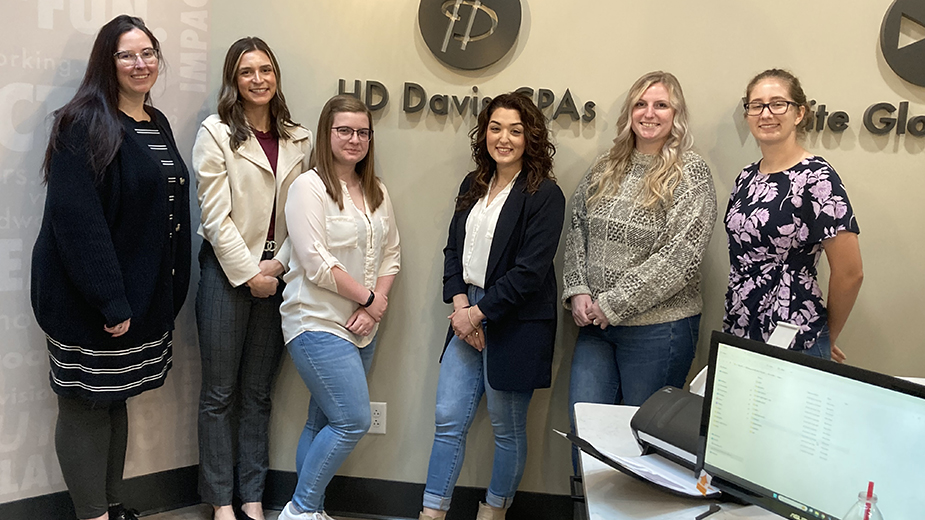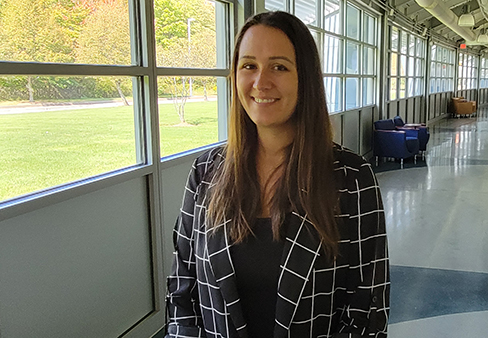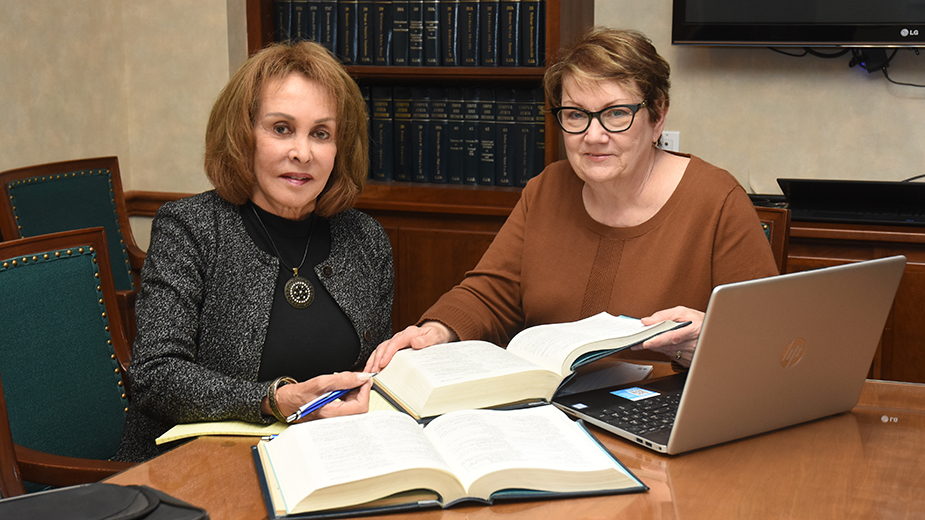YOUNGSTOWN, Ohio – For years, men were the ones arguing most court cases, analyzing accounts and opening their own businesses.
Now, that’s changing.
Women are making tremendous inroads in professions formerly dominated by men.
Two of those fields are law and accounting with the number of female entrepreneurs and business owners increasing as well.
The American Bar Association website shows that in 2022, women comprised 38% of lawyers, up slightly from 33% in 2012.
In Ohio, 36% of attorneys are women, according to the state bar association. That’s a slight increase from the previous year at 35.5%.
However, women outnumber men in law schools for the sixth consecutive year.
Accounting is another field where the number of women is growing. U.S. Bureau of Labor Statistics for 2022 show that nearly 59% of accountants and auditors were women.
Female business owners and entrepreneurs are making substantial progress too.
An article in Incfile earlier this year reported that 42% of all U.S. businesses are owned by women and the number of women-owned businesses has increased 114% since the early 2000s.
The Business Journal spoke to Mahoning and Shenango Valley women in law and accounting as well as entreprenuers to learn their perspectives.
A Second Career
Attorney Marty Bushey of the Youngstown law firm Manchester, Newman and Bennett worked as a nurse before moving into law.
After her husband set up an oral surgery practice in the Youngstown area, Bushey stayed home for about five years while her children were young. She continued to take classes at Youngstown State University and got involved in community groups and organizations.
When her children were old enough for her to return to work, she didn’t want to go back to nursing. The shift work and night and weekend schedules didn’t fit her family.
She decided to go to law school at the University of Akron.
“I did it full time because I did it while my children were in school,” Bushey says.
She practices primarily real estate law. Because of her nursing background, she first focused on medical malpractice.
Bushey believes the flexibility provided by the profession appeals to women.
When Bushey started with the firm in 1990, she worked part time – something unheard of at the time. She was the firm’s first female attorney and remained the only woman there for years.
“I’m someone that didn’t bother much,” Bushey says.
She never encountered any disrespect at the firm and doesn’t believe she was treated differently because of her gender.
There was, however, a judge, now deceased, who wouldn’t say anything to Bushey, but would make comments to her husband: “‘She did pretty good, considering,’” she recalls of the judge’s comments.
Other than that, Bushey says she didn’t face issues from clients or other lawyers who made comments or treated her unfairly.
“I have never had a moment of disrespect or someone saying something that’s off color,” she says.
Bushey was attracted to the law because she loves reading and researching and the idea of getting a case ready for trial sounded like something she would enjoy and do well.
For younger women entering the legal profession, Bushey shares some advice.
“Get in there and get involved,” she says. “You have to get involved. You have to be connected because that’s how people get to know you and know what you’re able to do for them. It helps with your clientele but it also opens a lot of doors for you.”
The Good Old Boys Network
Patricia Dougan, an attorney with Community Legal Aid, started practicing law about 30 years ago. Community Legal Aid provides legal services for lower-income families and individuals.
“I realized when I was in college that I had a lot of knowledge that would help people,” she says. “That was around the time that the mills had shut down and families were having a terrible time. I thought the best way to give them some help is to become a lawyer.”
In her early days as an attorney, one of the Mahoning County Common Pleas Court judges required women to wear skirts or dresses to court.
She also encountered the good old boys network.
“I think they just got more respect in court,” Dougan says. “Don’t get me wrong, there were a few – maybe even more than a few – male attorneys who were welcoming and helpful. You could walk up to them in court and ask them, ‘Hey, how do I do this?’ or ‘What should I do here?’ and they would be more than helpful.”
There were others who didn’t “even think you were a fly on the wall.”
She got to know the attorneys who were helpful, but she didn’t have a female mentor in her field. Dougan believes that’s for a couple of reasons.
“When I got out of law school, I was in my 40s,” she says. “I had a family with kids at home to take care of.”
She didn’t go to many social gatherings. Dougan also opened her own practice so she was more isolated.
“There were women that I knew, not necessarily long-term mentors, but I knew they were there,” she says. “I could ask them questions, go to them for guidance, pick up the phone.”
Dougan then worked for the domestic relations court judge and for the Mahoning County Division of Child Support before moving to legal aid.
The work appealed to her.
“The work we do, the people we help, the difference we make in the community,” she says. “We don’t always have as large an impact as we would like, but we’re certainly chiseling at it.”
Dougan primarily focuses on housing.
She believes things have changed a lot for women since she entered the profession. For sure, there are many more female lawyers.
“I think a lot of the good old boys network has aged out – retired, passed on – and younger attorneys are just accepting of female attorneys for the most part,” Dougan says.
While older generations didn’t always encourage their daughters to pursue careers, Dougan says that changed beginning with her generation, which urged their daughters to go for whatever they want.
As the number of women in different fields grows, more young women are encouraged and believe they can follow similar career paths.
“I think a lot of us, having come up through the ranks when it was so much more difficult, have been more than willing to reach back and give a hand up,” Dougan says.
For younger women in the legal profession, Dougan advises they seek advice when needed, always be as prepared as possible and if you think you can, go for it.
“Some young girls set their sights too low,” she says. “They need to trust themselves, have faith in themselves.”
Best Accounting Firm for Women
At HD Davis CPAs, women make up 73% of the staff. Last year, Accounting Today named the Liberty Township firm the best firm for women in the country. The previous year, the company was in the top three.
Among that 73% are Megan Roberts, director of operations; Erin Sturrus, director of tax; Alyssa Gray, Gina Getsy and Angela Frazis, all senior accountants; and Ally St. Clair, staff accountant.
HD Davis’s sister company, White Glove Payroll, is all women.
“I think we recognize that everyone is a person here,” Gray says. “We have obligations outside of work. I feel like HD is really good about accommodating that kind of stuff.”

Flex scheduling is an example.
The firm designed that with work-life balance in mind, Roberts says.
“I think that’s been very intentional to not be average in that regard,” she explains.
The women don’t believe they’ve experienced gender-based discrimination in their careers.
They have encountered clients who are surprised by their youth.
“I think building that relationship [with clients] and just establishing the trust with the client is the biggest obstacle or challenge” says Frazis, who’s been with the firm for about three years. “But once we get there, it’s solid.”
A lot of what helps to build confidence is developing a good relationship with your manager or team lead, who can mentor and guide you, the women say.
“All of our team leaders are women,” Getsy says.
St. Clair says sometimes walking into the business world as a woman, you might get looked at differently than as a man.
“But it’s nice to see that our management and our people that we look up to are all women,” she says. “It gives us more confidence that we are capable because the people that we look up to are all women. They’ve done it. So why can’t we?”
Frazis says she was the only woman in her federal taxation class at Youngstown State University, which was also taught by a woman.
Her classmates wanted to work on projects with her.
“To be fair, I was already working here. So they were, like, ‘Oh, she knows what she’s doing,’” Frazis says. “I was more familiar with the content.”
But Gray says there have been times when she had to call on a partner at the firm to have a conversation with a client because the client wasn’t receiving the information from her.
She believes that was because she’s female.
“I had a client at my last firm yell at me. But when he spoke to my boss, it was, ‘Oh, man to man. We’re friends. We’re on the same level,’” Gray says. “I think that is where that feeling comes from.”
Roberts, the firm’s director of operations, isn’t an accountant. She’s been at HD Davis since February. Before joining the firm, she worked for 10 years in investment management.
“I think for young, female professionals, we have to work harder to maintain relationships…,” she says.
Roberts recalls a meeting she was facilitating at a previous job when the male speaker she had invited asked her to take notes.
“That’s not here,” she adds. “We all found the right place.”
Shared DNA, Shared Goals
In 2016, sisters Nicci Alevizakis, Cari Christofferson and Cassi Conway opened Icon Studio, a salon in Poland, and Icon Bridal. With the latter, they travel to wedding locales to style hair and apply makeup for brides and bridal parties.

Alevizakis always knew she wanted to open her own salon. She styles brides and wedding parties most weekends and would hire people to help.
But they were often unreliable. Her sisters always showed up and did a good job. She urged them to go to cosmetology school.
Christofferson and Conway initially went a different path. Both graduated from Westminster College. Conway studied political science with plans to attend law school and Christofferson was working in outside medical sales.
“It wasn’t until they were working in their careers that they decided, ‘We are really good at this,’” Alevizakis says.
The sisters don’t believe they faced gender-related discrimination as business owners. When they renovated and expanded the salon, a project completed last March, they secured financing through Valley Economic Development Partners.
“They did say it was helpful that it was a women-owned, family-owned type of thing,” Alevizakis says.
While there’s a perception that women – and sisters – bicker and encounter problems getting along, that’s not the case for the owners of Icon.
“I feel like we know we can count on each other,” Alevizakis says. “If we have a bad day, we can have a bad day and the next day, we’re still sisters.”
Christofferson agrees.
“I sometimes worry about people who are just friends and go into business together,” she says.
It’s easier to walk away if things don’t work out.
Conway says their familial relationship helps their work relationship.
“Each of us is very concerned about each other’s welfare,” she says. “I don’t want them to be in a bad position just like they don’t want me to be in a bad position. We’re very concerned about each other.”
All three women are also mothers. Alevezakis has three children, Christofferson has two and Conway, one.
One thing they’ve learned that they would advise other aspiring entrepreneurs about is the amount of work involved in owning your own business.
“Rely on no one else,” Conway says. “Sometimes we think people are going to come save you and no one is coming.”
If there’s an electrical or plumbing problem, for example, as business owners and the owners of the plaza that houses their salon, it’s up to the three women to fix it.
“You don’t get to clock in and out,” Alevezakis adds. “You’re always on.”
Fifteen people work at the salon and the stylists are independent contractors.
The women believe the best thing about owning a business together is their shared goals.
“We want to be full-time moms,” says Alevezakis. “We want to be full-time business owners, run the salon and be awesome at our jobs, be awesome moms. We each know that that’s the most important thing to us.”
Helping Other Women
Kara Wasser, CEO and founder of OhanaLink Technologies in Hermitage, Pa., launched her business in 2019. Before that, she worked in banking.

OhanaLink, based at the eCenter@LindenPointe, is a platform technology company that develops mobile applications.
As her company has grown, Wasser has pursued larger sums from investors and believes she’s encountered discrimination based on her gender.
“Just getting the attention from investors,” she says. “Really not getting a lot of feedback from investors.”
Some are quick to deny without even learning about the business or the opportunity.
Wasser believes that’s gender related because of what she’s learned about the businesses that do get funding from those investors.
The fact that her business focuses on a women-centered area also likely plays a role.
OhanaLink Purple is an app for domestic violence victims and the organizations that help them.
“I have been actually told that there are men in [groups that provide money to startups] that it would make them uncomfortable to invest in a business that focused on domestic violence,” Wasser says.
To combat that, OhanaLink shifted its focus to target investors with social impact as their aim.
The original OhanaLink app, started in early 2020, connects family members or friends so they may communicate easily and privately during health-related events, such as a birth.
“During that time, we had done some media around the privacy and security features built into our platform. And so our local domestic violence agency came to us and said, ‘We are desperate for a solution. Can you help us?’” she says.
OhanaLink Purple enables providers of domestic violence services to safely and securely connect with victims. The app includes a disguised access point so it cannot be discovered by an abuser that may be monitoring a victim’s device.
With OhanaLink Purple, the fact that Wasser is female may have allowed her an advantage.
“I think it definitely has enabled a quicker trust factor to take place,” she says.
The app is in eight states with 37 agencies onboarded and hundreds of advocates helping victims.
“I don’t think there’s a shortcut to success,” Wasser says, adding that patience is key.
“Continuing to learn every day was really the challenge in diving into entrepreneurship,” Wasser says. “And really checking your ego at the door and learning from those that have been there and done that.”
Pictured at top: Attorneys Marty Bushey and Patricia Dougan entered the legal profession along different paths.
